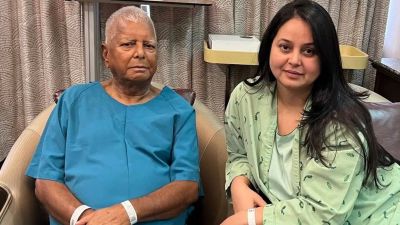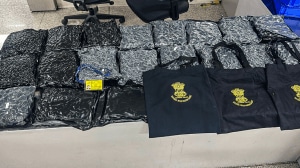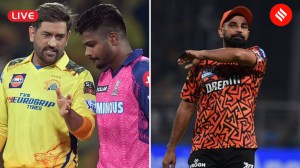Outlaw in the cafe
He is not the gun slinger from the Wild West, currently asking for his sixth drink from the beautiful barmaid. No, he is not the one whos...

He is not the gun slinger from the Wild West, currently asking for his sixth drink from the beautiful barmaid. No, he is not the one whose romance is heralded by galloping horses and defeaning gunshots that terminate the evil. He is not the marginal man, the outcast, the exile from social everydayness, playing out his personal exceptionalism on the other side of humanity. Seek out the new outlaw elsewhere in the culturescape — at the poolside, in the farmhouse, in the discotheque or in restaurants with names like Tamarind Court. In all likelihood, he comes there in his top-of-the-line BMW, or in the latest four-wheel drive from Japan, with blood and flesh on the tyre and single malt in his breath. This is partytime, time to be in the right place, with the right people, time to be a socialite, time to take out the gun and shoot the bar girl point blank and walk away. Isn’t it fun?
People like him have names like Manu Sharma, the alleged killer of Jessica Lal, the girl who was having a good time at afashionable Delhi restaurant. She was having fun as a Thursday night bar girl. The killer, too, was having fun. The high point of his fun was shooting Jessica in the head, shooting this girl who refused him a drink. That was a conflict of privilege and freedom, power and pathology, and it was instant, spontaneous. Jessica’s freedom was nothing exceptional: she could afford to be a barmaid for a night and an event manager the next day. It was a privilege defined by herself. For the killer, the power is inheritance, the privilege is secondary. The power is inherited from father, who has to be a professional politician of the worst kind. In India there is no power more powerful than politics, and the ultimate privilege is political. Those who have it belong to a subclass of absolute autonomy — no punishment is worth the crime and every crime is a display of confidence, of the freedom of expression.
The freedom continues to express itself in the heartland of social statement. For a while, we thought suchthings happen only in Saddam’s Mesopotamia where son Udai’s privilege goes beyond a garageful of fancy cars — he can shoot anybody he chooses and get any girl he fancies. The son as the most violent manifestation of father’s power is commonplace in societies controlled by the fantasies of one man, the father figure. In India, very plural and diverse, political power has created its own version of plurality and diversity in transmitted terror. Of late, the terror has become upbeat, upscale, and trendy, totally repudiating the old sociology of the-countryside-is-brutal. It has become a metropolitan theme party in which celebrityhood is such a desperate joke and Tamarind Court-like power display is such a thin camouflage. And it is power, courtesy Father Politics, that spoils the party and kills the girl. The victimhood of Jessica Lal only magnifies the social horror of the rising son, whose freedom is not only an assertion of status (the political sonhood) but a class statement. And the system never denies hima drink. Pray he will never be your party neighbour. (No pun in party).



- 01
- 02
- 03
- 04
- 05




























